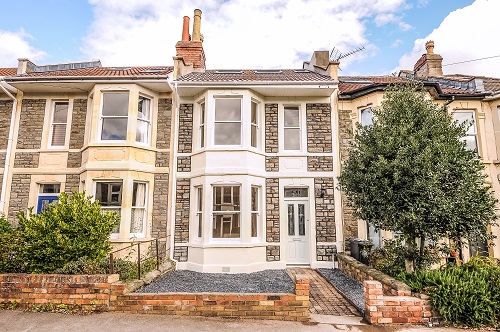
It’s the age-old question – should you move or improve?
Whether you’re a property investor, a landlord or a homeowner, you’re likely to want to maximise the value of your property. Home renovations can be costly, and may take time and effort to complete; however the ‘fix what you have’ approach may well be the best way to ensure your property is really working as hard as it can for you…
When comparing the cost of purchasing a new property with the cost of renovating an existing asset, it’s likely that the latter will leave you with substantially more spare change, especially when you consider the stamp duty charges you’re likely to face.
The trick is to always consider property renovation as an investment. Your objective must be to increase your property’s resale value or rental costs in order to not only get out what you put in, but to generate a positive return. But remember, every property is different, and will require careful assessment and calculations to determine the most profitable course of action.
The potential value of property renovation
HSBC recently conducted a study outlining the potential value of property renovation, demonstrating the different areas of your home that you can work on and the respective increase it may bring to the overall value. (1)
Here’s what they found:
- Renovating a bathroom could increase the price of your property by 4-6%
- Building a conservatory could increase the price of your property by 6-13%
- Converting the loft could increase the price of your property by 10-15%
- Building an extension could increase the size and value of your home by 15-20%
- Installing smart home technology could add an average of £3,000-£10,000 to your property’s value
- Adding solar panels could add an average of £2,000 to £5,000 to your property’s value
- Re-tiling/renovating the roof could increase your property’s value by 60-70% of the cost
- Switching to A-rated double-glazing could save up to £175 per year (based on a detached house).
Simple solutions
It’s worth knowing that not all home improvements have to involve knocking down walls or building extensions; there are simple ‘tricks’ that can take just days to complete whilst still adding value to your property. You should consider adding curb appeal with strategically placed pot plants and a new front door, or refreshing the interior by replacing dated fixtures and fittings such as light switches and door handles.
And if you are only going to improve one room, make it the kitchen. This has become the property showpiece; the central hub and gathering place for families and an entertainment space for friends. According to property expert, Phil Spencer, “the number one priority is creating a handsome and efficient work surface and ensuring easy access between the three points of the kitchen triangle, that is, the sink, fridge and cooker”. A newly fitted kitchen can add 4.6% onto your home’s value. (2)
How to avoid overdeveloping
Overdeveloping your house might be more detrimental than not developing at all.
To avoid ‘over-improving’ or outgrowing your street, before you renovate, do some research on the area to find out how much the property will be worth after the renovations – remember, all properties have a ceiling price.
Once you’ve accurately calculated this new value, known as the After-Repair-Value (or ARV), you should deduct the price that you paid for the property from the estimated ARV, and what you are left with is the maximum amount you should spend. This must include any additional costs such as financing charges, closing costs, and holding costs if the property is vacant whilst you complete the renovations.
Whatever you do, do it well
Whether your renovations involve a paintbrush or a bulldozer, it’s essential that the work is carried out to a high standard. If a potential buyer or tenant detects poor quality finishes or bad workmanship, it could raise additional questions about the quality of the more important property elements, for example, the electrics and plumbing.
Taking shortcuts through cosmetic solutions is also a bad idea; if there is a problem with the property, you may be able to create a temporary fix to hide it from potential buyers, but you are unlikely to fool a valuer.
Of course, we can’t guarantee that these suggestions will increase the value of your property, but research shows that, with careful planning and consideration, renovating your property can be a worthwhile, and often relatively straightforward, exercise.
If you’re interested in finding out more about investing with Hubb, contact us for an initial chat
on+44 (0)117 422 0122 or email us
Sources:
1 https://www.hsbc.co.uk/1/2/tools-and-guides/loans/potential-value-of-home-renovation
2 http://www.telegraph.co.uk/finance/property/buying-selling-moving/7906602/Phil-Spencers-top-20-ways-to-add-value-to-your-home.html
